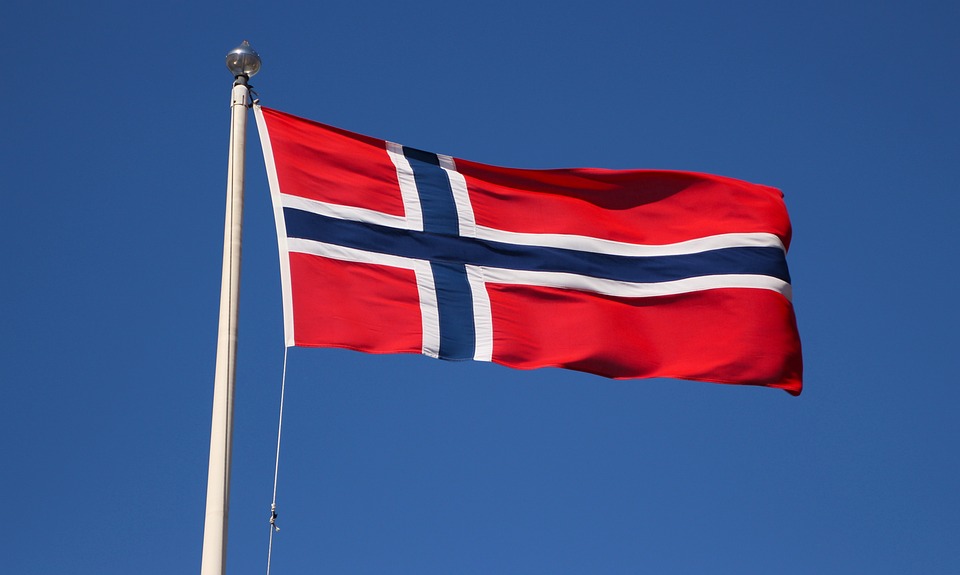In recent weeks, Russia has escalated its attacks on Ukraine in the war that has been going on for more than eight months. Likely as a result of the escalation, Norway has increased its military alert.
The Norwegian government said Monday that it had put the military on a raised alert level starting Tuesday. More personnel would be moved to operational duties and enhancing the role of a rapid mobilization force as a result of the war in Ukraine. Norway will also be expected to bring its new fleet of US-made P-8 Poseidon submarine-hunting maritime patrol aircraft into regular operation ahead of schedule, according to Norwegian chief of defense General Eirik Kristoffersen.
Kristoffersen noted that there was no concrete threat that prompted the government to make the decision. Rather, Kristoffersen told Reuters that the “uncertainties” were leading officials to raise the country’s military preparedness.
“We have seen an escalation in Ukraine, we are training Ukrainian forces, the Ukraine war has changed with the Russian mobilization,” said Kristoffersen. “And at the same time, we have had a gas explosion in the Baltic Sea and drone activity in the North Sea platforms.”
Kristoffersen said the raised alert level is expected to last for a year. Norway first deployed its military to guard offshore platforms and onshore facilities following the leaks on the Nord Stream pipelines in Swedish and Danish waters back in September. Norway has received support from the British, Dutch, French, and German armed forces.
Norway also shares a border with Russia spanning nearly 200 kilometers in the Arctic, as well as a maritime border.
On the same day, US State Department spokesman Ned Price said that Russia’s suspension of a United Nations-brokered grain deal with Ukraine was having “harmful, immediate impacts” on food security in the world, resulting in high food prices. Russia suspended its role in the initiative allowing grain shipments to sail through the Black Sea corridor, but despite the suspension, grain ships are still sailing through from Ukrainian ports.
“Any disruption to the initiative risks spiking food prices, lowering the confidence of insurers and commercial shippers who have returned to Black Sea routes and further imposing hardships on lower-income countries already reeling from dire humanitarian crises and food security,” said Price.



 Trump Signs “America First Arms Transfer Strategy” to Prioritize U.S. Weapons Sales
Trump Signs “America First Arms Transfer Strategy” to Prioritize U.S. Weapons Sales  India–U.S. Interim Trade Pact Cuts Auto Tariffs but Leaves Tesla Out
India–U.S. Interim Trade Pact Cuts Auto Tariffs but Leaves Tesla Out  TrumpRx Website Launches to Offer Discounted Prescription Drugs for Cash-Paying Americans
TrumpRx Website Launches to Offer Discounted Prescription Drugs for Cash-Paying Americans  Ohio Man Indicted for Alleged Threat Against Vice President JD Vance, Faces Additional Federal Charges
Ohio Man Indicted for Alleged Threat Against Vice President JD Vance, Faces Additional Federal Charges  Trump Signs Executive Order Threatening 25% Tariffs on Countries Trading With Iran
Trump Signs Executive Order Threatening 25% Tariffs on Countries Trading With Iran  Trump Allows Commercial Fishing in Protected New England Waters
Trump Allows Commercial Fishing in Protected New England Waters  Pentagon Ends Military Education Programs With Harvard University
Pentagon Ends Military Education Programs With Harvard University  Trump Endorses Japan’s Sanae Takaichi Ahead of Crucial Election Amid Market and China Tensions
Trump Endorses Japan’s Sanae Takaichi Ahead of Crucial Election Amid Market and China Tensions  Nighttime Shelling Causes Serious Damage in Russia’s Belgorod Region Near Ukraine Border
Nighttime Shelling Causes Serious Damage in Russia’s Belgorod Region Near Ukraine Border  Trump Says “Very Good Talks” Underway on Russia-Ukraine War as Peace Efforts Continue
Trump Says “Very Good Talks” Underway on Russia-Ukraine War as Peace Efforts Continue  U.S. Lawmakers to Review Unredacted Jeffrey Epstein DOJ Files Starting Monday
U.S. Lawmakers to Review Unredacted Jeffrey Epstein DOJ Files Starting Monday  Trump Lifts 25% Tariff on Indian Goods in Strategic U.S.–India Trade and Energy Deal
Trump Lifts 25% Tariff on Indian Goods in Strategic U.S.–India Trade and Energy Deal  Missouri Judge Dismisses Lawsuit Challenging Starbucks’ Diversity and Inclusion Policies
Missouri Judge Dismisses Lawsuit Challenging Starbucks’ Diversity and Inclusion Policies  Norway Opens Corruption Probe Into Former PM and Nobel Committee Chair Thorbjoern Jagland Over Epstein Links
Norway Opens Corruption Probe Into Former PM and Nobel Committee Chair Thorbjoern Jagland Over Epstein Links  U.S. to Begin Paying UN Dues as Financial Crisis Spurs Push for Reforms
U.S. to Begin Paying UN Dues as Financial Crisis Spurs Push for Reforms  Trump Backs Nexstar–Tegna Merger Amid Shifting U.S. Media Landscape
Trump Backs Nexstar–Tegna Merger Amid Shifting U.S. Media Landscape  Federal Judge Restores Funding for Gateway Rail Tunnel Project
Federal Judge Restores Funding for Gateway Rail Tunnel Project 































